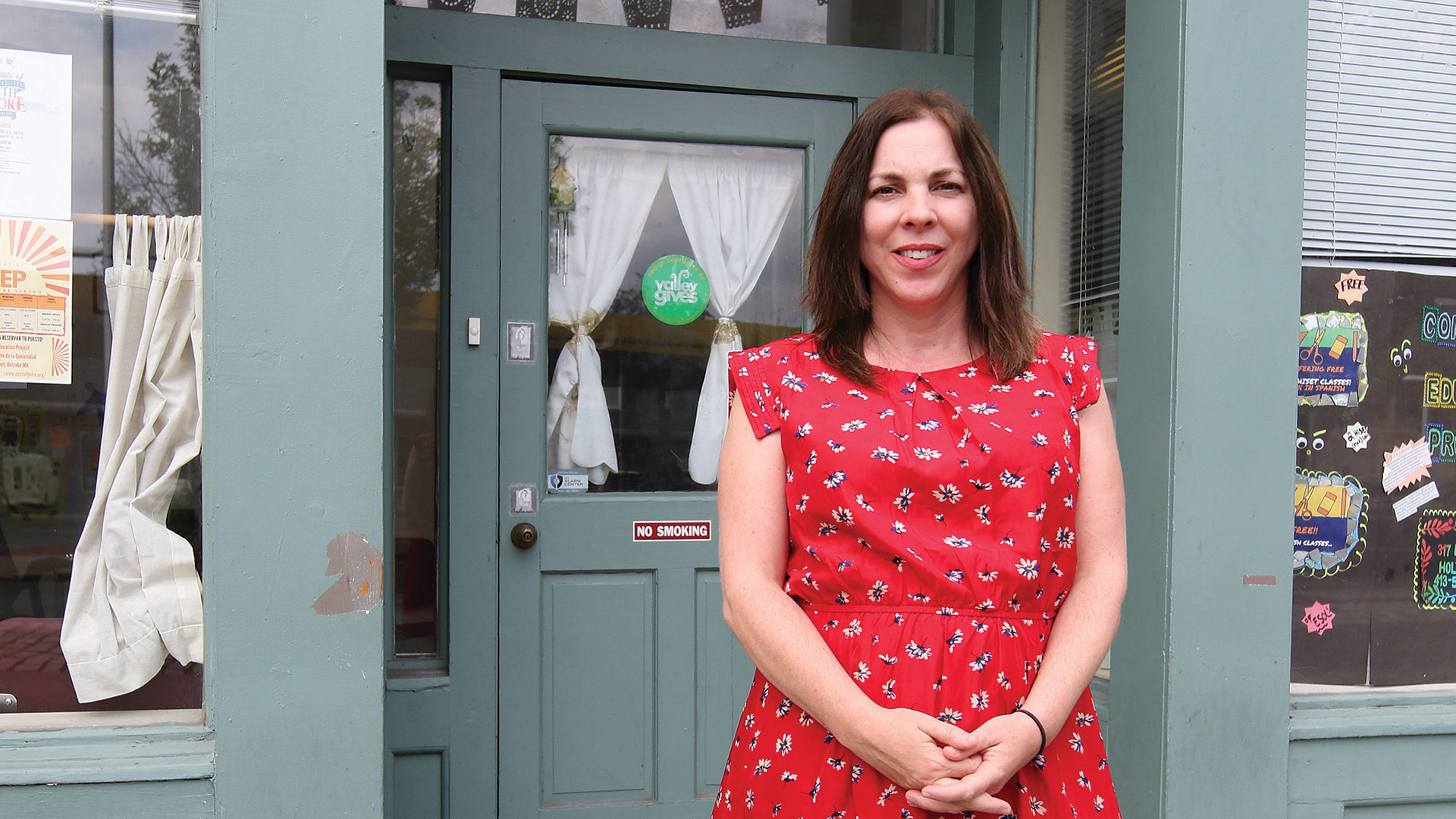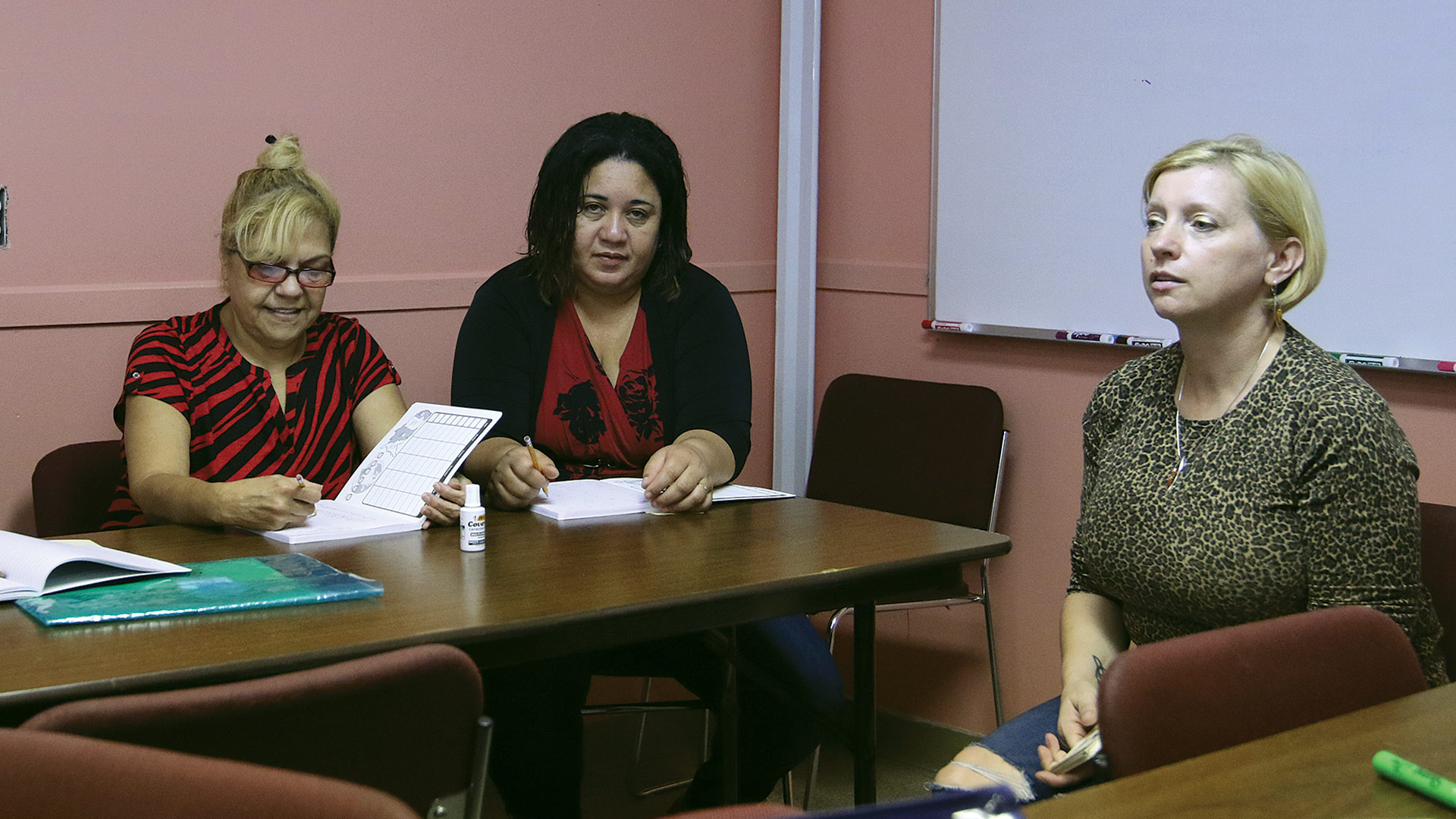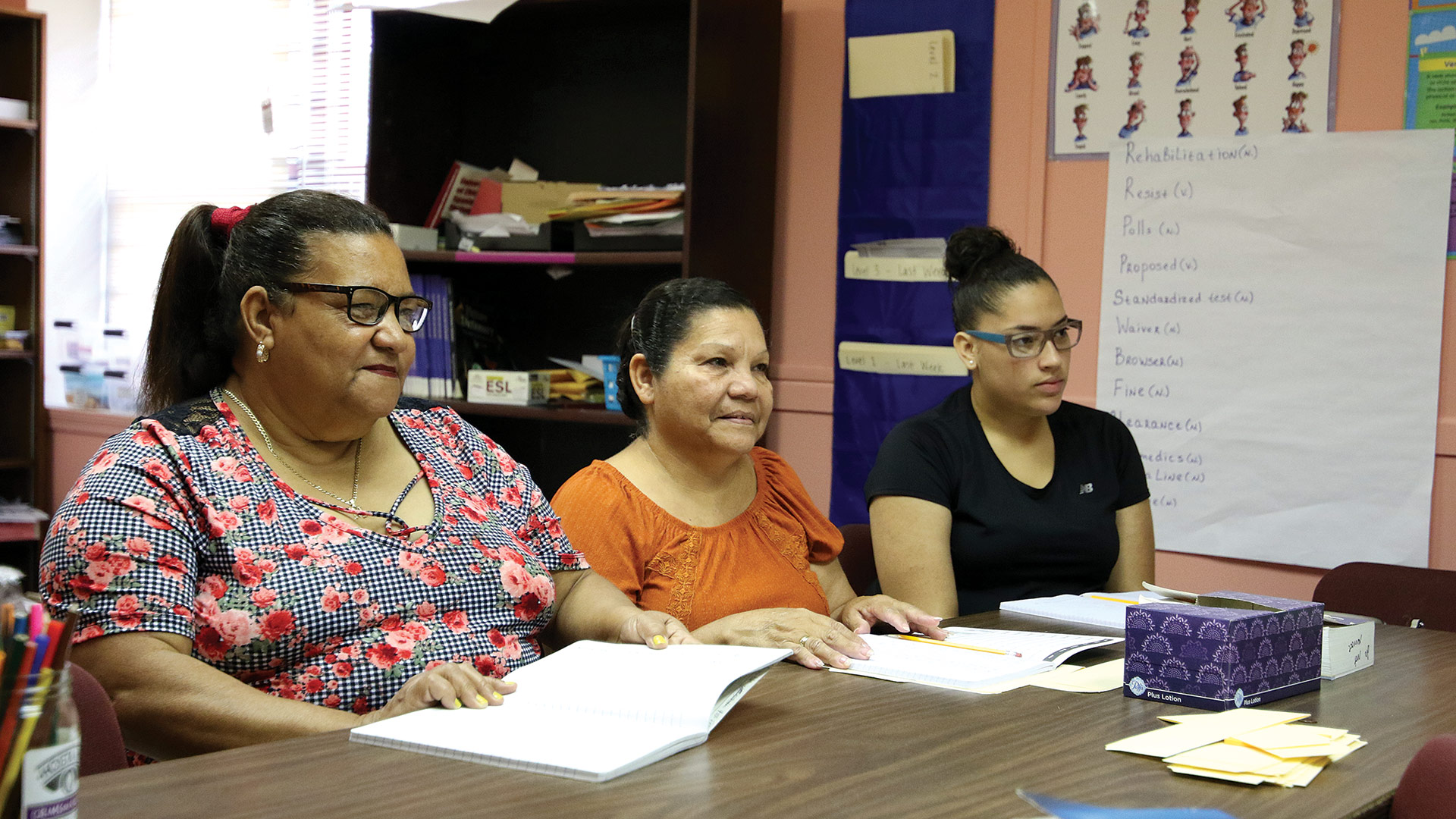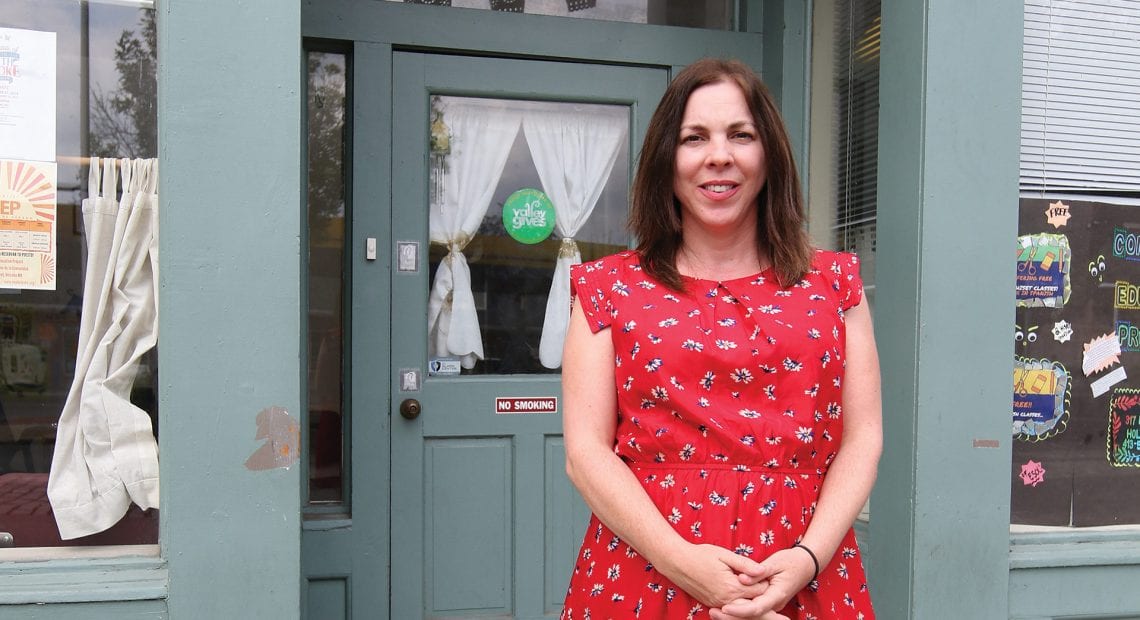Breaking Barriers

Rose Egan was inspired to work at the CEP because she had a long and difficult journey to education and wants to be able to give the gift of learning to others.
For many people, going to school and preparing to enter the working world is the norm. Unfortunately, for many members of the Latino community in the city of Holyoke, this is easier said than done. The language barriers faced by those who do not speak English are often burdensome and prevent people from getting an education or finding a job. The Community Education Project provides classes to give individuals the tools they need to become successful and move forward with their lives.
Imagine that your one and only barrier to success was not speaking the language you need to speak in order to move forward in life.
This intimidating scenario is all too real for many people in the city of Holyoke. In the Paper City, 30% of the population age 18 and older does not have a high-school diploma, while 18.4% speak with limited English proficiency.
This language barrier creates setbacks for much of the Latino community, but the Community Education Project (CEP) is working to change that.
“The bottom line is, people want to better their lives, and they want better opportunities. A lot of them are doing it for their children so they have better opportunities as well.”
The CEP provides adult-literacy and language-education programs in an effort to achieve social and economic justice by contributing to the development of the Latino community in Holyoke. The organization offers two levels of native language literacy in Spanish to prepare students for HiSET and GED exams in Spanish, three levels of English for speakers of other languages (ESOL), and adult basic education for transition to college and careers.
It is the only provider in the region that offers native language literacy, or GED preparation in Spanish, and all classes are provided for free to anyone who walks in the door.
Executive Director Rose Egan said most people come in because they desire a better quality of life and want to be more independent.

From left, Edith Rodriguez, and Sonia Girón Peña de Aponte take their first English class with Angelika Bay, lead instructor in English for speakers of other languages (ESOL).
“The bottom line is, people want to better their lives, and they want better opportunities,” she noted. “A lot of them are doing it for their children so they have better opportunities as well.”
People come to the CEP at all levels, including adult learners with grade-level equivalency of age 3 to high school. Some students haven’t stepped in a classroom in 20 years. Some must bring interpreters to doctors’ appointments. Some are parents who want to be able to talk to their kids’ teachers and other school personnel without having an outsider in the mix, because they feel like they cannot develop a solid relationship.
“They want to be able to advocate for themselves,” said Egan. “The issue we see is that people can get along in their daily life fine in this area because everyone around here speaks Spanish, but then when they try to step out of that zone, they find barriers due to their lack of English-language skills.”
CEP classes run throughout the day and at night, and summer classes are offered as well. Egan said about 110 students participate daily across all programs, and seven staff members make it all happen — a “small but mighty” team, as she calls it.
“I didn’t even know what college was — it could have been another planet. I knew no one that went to college in my entire life. My purpose here is to help open doors for students, but also help elevate the organization as a whole.”
One staff member in particular, Vida Zavala, made a positive impact on student Ingrid Arvelo’s life, and put her in the right direction to accomplish her goals.
Arvelo — an immigrant from Venezuela and a 40-year-old mother of two — has plenty on her hands, but still found time to take level three ESOL classes, including the hardest, most immersive class in the program.
“It worked for me because now I’m taking classes to go to college in January,” she said.
Arvelo is currently enrolled in the college-transition course with CEP, and wants to attend Holyoke Community College next year, hoping to study law or education to become a teacher. She is thankful to the CEP for helping give her the confidence to learn English.

From left, Maria Vasquez, Nydia Rodriguez, and Stephanie Trinidad take their first English class at the CEP.
“If they see that you are in trouble or struggling, they help,” she said. “I’m so grateful for the program.”
Broader Purpose
Putting on programs like this isn’t easy, but when things get tough, Egan says she remembers her journey through education and how much she wants to give that to others.
“I didn’t even know what college was — it could have been another planet. I knew no one that went to college in my entire life,” she said. “My purpose here is to help open doors for students, but also help elevate the organization as a whole.”
Egan is also a single mom and sent her daughter off to her first day of kindergarten recently. She recognizes — and is grateful — that her daughter will probably never experience what it’s like to not know what education is. Her job at the CEP is her way to make sure others can grow and learn every day.
“This is an opportunity for me to be able to come to work every day and feel like I’m not coming to work,” she said. “I’m doing what I love to do, which is sharing the gift of education with other people.”
And she has plans in motion to help support the classes the CEP offers.
The Community Education Project is a 501(c)(3) organization and is classified as a public charity. After attending an innovation accelerator program with Paul Silva, Egan came up with a few programs to expand its revenue streams.
The first is a document-translation service the CEP has been providing for 30 years, but recently opened up to nonprofit organizations in the area. She explained that document translation is very costly, and the CEP is able to come in about 20% below competitors, helping other local nonprofits get their documents translated into Spanish.
“It helps us because it provides us some unrestricted revenue so that we can focus on our core services, which are serving our students and providing them with native language literacy, English-language skills, transition to college and careers, things like that,” Egan said, adding that this is very difficult to do with a limited budget.
“We find the biggest barrier to people coming in our door is they didn’t know we existed,” she said, adding that conducting more outreach in the community and incorporating marketing strategies into the mix are also on her to-do list.
She’s also hoping to expand Spanish-language classes to both children and adult learners, such as those regularly tasked with interacting with Spanish-speaking employees.
“We’re targeting local employers so that we can train their staff to speak Spanish so they can develop a better relationship with people they are serving without having to have a middle person interpret,” Egan said. “Launching those classes will really help us worry less about how we’re going to fund our classes and our core program. We want to make sure we have the funds we need to continue providing the services that will better our community.”
Looking to the Future
With all these services, Egan is confident CEP will be able to help even more students like Arvelo reach their goals.
“This country gives you the opportunity to be a better person, a better professional, and a better worker,” Arvelo said. “But if you don’t speak English and if you don’t put in the effort, you can’t make it. So English is the first step.”
With that in mind, Egan and the staff at the CEP continue to look for new ways to support those who want a better quality of life and have big plans for the future, one step at a time.
“Education is such a gift, and without it, we don’t even know what we’re missing,” Egan said. “If I can be that conduit to just make education accessible to those who otherwise wouldn’t have that opportunity, then I’m more than happy to step into that role.”
Kayla Ebner can be reached at [email protected]








